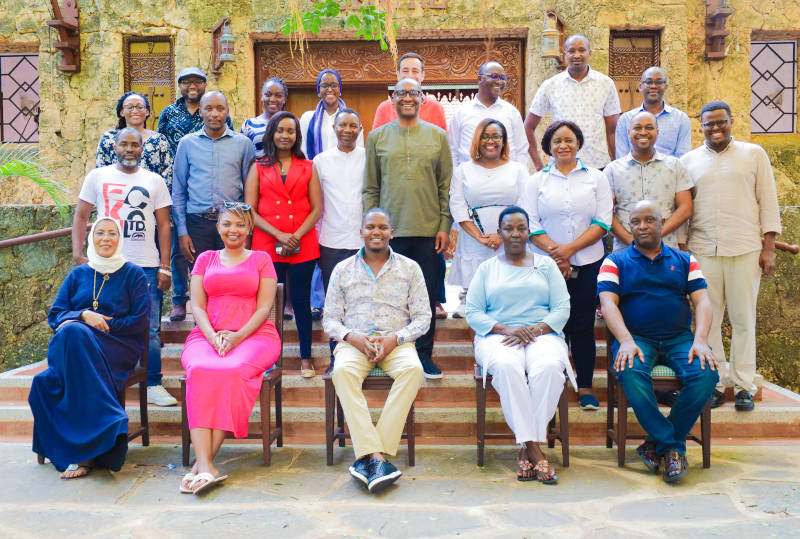From June 14th to 17th, 2024, KICTANet participated at the Thirteenth Parliament, Third Session, Senate Directorate of Social Economic Committees Standing Committee on ICT. The event, held at the picturesque Serena Beach Resort and Spa in Mombasa County, was a significant platform for discussing the future of ICT in Kenya. The session was chaired by Senator Allan Chesang, the Chairperson of the Senate Information, Information Communication and Technology Committee.
KICTANet, a multi-stakeholder think tank that represents public interest, has been at the forefront of ICT policy and regulation in Kenya. Our engagement with the Senate ICT Committee has been instrumental in shaping policies that drive ICT growth and development.
Key Discussion Points
The discussions at the event were robust and covered several critical areas:
- Perspectives from Development Partners on ICT Sector Development: We explored insights from various development partners on the current state and future prospects of the ICT sector.
- Collaborative Opportunities with Development Partners for Policy Implementation and Capacity Building: We discussed how development partners can assist in implementing ICT policies and building capacity within the sector.
- Role of Public-Private Partnerships in Promoting Digital Education: The importance and impact of public-private partnerships in enhancing digital education were highlighted.
- Policy Implications and Regulatory Frameworks for Emerging Tech Adoption: We addressed the necessary policies and regulatory frameworks to support the adoption of emerging technologies.
- Public-Private Partnerships and Funding Mechanisms for Infrastructure Development: Identifying funding mechanisms and the role of public-private partnerships in developing ICT infrastructure was a key focus.
KICTANet’s Contributions
KICTANetI emphasized its commitment to fostering ICT growth through multi-stakeholder engagement. Our recent initiatives, such as the Civic Tech on Technology Facilitated Gender-based Violence, and our policy brief on the accessibility of government websites for persons with disabilities, were well-received. These initiatives underscore our dedication to inclusive public participation and digital growth.
Capacity Building
KICTANet has been actively involved in capacity-building initiatives, including:
1. Kenya School of Internet Governance for Boards and Leadership: Providing training and capacity building for boards and leadership in the ICT sector.
2. Citizen Cyber Hygiene Training and Campaigns: Collaborating with development partners, ICTA, CA, and KFCB to educate citizens on online security and cyber hygiene.
3. TFGBV and Challenges of Women and Girls in Participating in the Knowledge Economy: Addressing the challenges faced by women and girls in the digital economy and promoting their participation.
Research
KICTANet has conducted significant research in the ICT sector, including: Policy Brief on Accessibility of Government Websites**: Focusing on the accessibility of government websites, especially for persons with disabilities; and Policy Brief on 5 Years Review of Data Protection Act and Challenges**: Reviewing the Data Protection Act and highlighting challenges and areas for improvement.
Stakeholder Engagement
KICTANet has been actively engaged in various stakeholder events, including Convening the Kenya IGF, Youth IGF, and Children IGF – Organizing and hosting various IGF events to promote dialogue and collaboration among stakeholders; and Convening Many Other Events – Hosting numerous events to bring together stakeholders and discuss critical ICT issues.
Policy Advocacy
KICTANet has been actively involved in policy advocacy, including:
- Public Participation: Making submissions to Parliament on various bills, including the Finance Bill, KICA, and Huduma Bill.
- Critical Infrastructure Bill: Advocating for regulatory frameworks that support local businesses and prevent capital flight.
- AI Engagement: Promoting innovations and avoiding regulatory hurdles.
- Taxation and Effect on the Digital Economy Engagement: Advocating for shared prosperity and taxes that support industries.
- Digital IDs: Advocating against duplicative initiatives and promoting efficient use of resources.
- Affordable Electricity: Advocating for competitive electricity pricing to support the ICT industry.
- USF Funds: Urging the committee to monitor and ensure the utilization of USF funds.
- Protecting Independent Regulatory Bodies: Advocating for the autonomy of regulatory bodies like CA.
- Supporting Local Innovations and Manufacturing: Promoting local innovations and manufacturing through subsidies and industrial parks.
- Supporting the Gig Economy: Advocating for the support of creatives, BPOs, and the gig economy.
- Opposition to ICT Practitioner Regulation: Vigorously opposing bills that regulate ICT practitioners and collect annual fees.
The event was a resounding success, providing a platform for meaningful dialogue and collaboration. KICTANet remains committed to working with the Senate ICT Committee and other stakeholders to drive ICT policy and development in Kenya. The discussions and insights gained from this session will undoubtedly shape our future initiatives and collaborations. As part of the takeaway, KICTANet will review the Implementation of the Computer Misuse and Cybercrime Act to address the rising incidence of cybercrime.
We look forward to continuing our engagement with the Senate and other partners to achieve our shared vision of an ICT-enabled Kenya.
![]()




